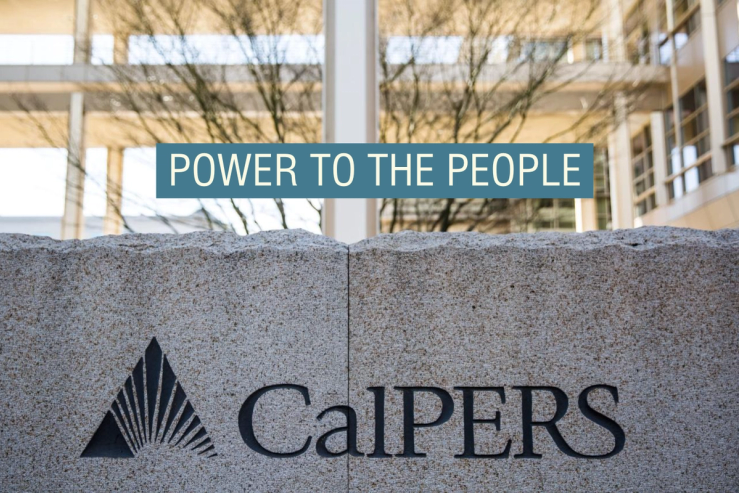The Scoop
California retirees just picked the pocket of one of the smartest investors on Wall Street.
When Yale’s $41 billion endowment sold billions of dollars of stakes in private investment funds last month, the usual players lined up to split the spoils: Blackstone, HarbourVest, Pantheon. A quiet winner, though, was California’s $556 billion state-employee pension, which bought about $550 million of Yale’s assets at just under 90 cents on the dollar, a steeper discount than other buyers, people familiar with the matter said.
It was the kind of transaction that set tongues wagging across Wall Street. Yale had built a reputation as the smartest investor in higher education by plowing into private equity in the 1980s, under its pioneering chief David Swensen, whose eponymous model was copied across the nonprofit world. Endowments, philanthropies, and pension funds rushed to copy him, and their money helped build the $30-trillion world of private investing.

In this article:
Know More
The stake sale, which included slices of dozens of blue-chip funds, was planned before President Donald Trump began his campaign against elite universities. But it’s seen as an omen for schools facing federal funding cuts that their huge endowments will be tapped to backfill. Massive funds have been raised to capitalize on the brisk trade in fund stakes.
CalPERS’s haul included a big stake in crypto company Circle, held through a General Catalyst venture fund that Yale was selling, according to people familiar with the matter. Marketing documents circulated to buyers gave the fund’s value as of December 31, which didn’t account for Circle’s coming IPO, a major oversight. The June 5 listing and Circle’s subsequent 480% stock-price increase generated quick gains of more than $100 million for CalPERS, the people said.
That windfall contributed modestly but auspiciously to a 14.3% gain in CalPERS’ private-equity strategy for the year that ended June 30, according to results released Monday. As the largest US pension fund, CalPERS is closely watched by rivals and courted by money managers. And it’s in the middle of a major private-investing reboot after chronic underperformance and squeamishness over some job-killing buyouts — “private equity isn’t my favorite asset class,” one CalPERS board member said in 2020 — led to a pullback and the departures of two successive chief investment officers. One of them admitted that the fund’s “lost decade” had cost retirees as much as $18 billion.
In 2021, CalPERS hired an outsider, Anton Orlich, who has invested quickly, shifted away from mega-buyout funds toward venture capital and growth equity, and muscled out other investors for special rights to invest directly alongside managers.

Yale didn’t respond to a request for comment. A CalPERS spokesman declined to comment.
Liz’s view
Yale might be forgiven for missing a single line item among dozens, but its reputation as the smartest investor in higher education is already under threat. Its endowment generated just 5.7% last year, versus 14% for a plain-vanilla mix of stocks and bonds. And the model it pioneered is now the playbook for the $874 billion endowment industry: Those with at least $1 billion in assets have nearly one-third of their money invested in private markets, up from 16% in 2013, according to the National Association of College and University Business Officers.
A dealmaking drought means those private funds are sending back less cash than usual at exactly the moment that Yale and its peers need more of it. In addition to federal funding cuts (which have so far spared Yale), the Trump administration has threatened tax breaks, international student enrollment, overseas investments, and other cash cows. Endowments are likely to be forced sellers, and making sure they get full price will ease the sting of funding cuts, enable critical research, and keep the spigots of financial aid open. For now, Yale’s goof is CalPERS’ gain.
The View From CalPERS
Some retirees and former board members think CalPERS is taking too much risk in its private-equity portfolio and have called for an audit of its holdings and fees. CEO Marcie Frost disagrees.
“This is an asset class that we have conviction in,” she said Monday on a call with reporters. “We think it will outperform the public markets… Why shouldn’t our members have access to those outsized returns?”
Notable
- “The Ivy League’s secret sauce is curdling,” Reuters Breakingviews’ Sebastian Pellejero writes, pointing out data showing that for every percentage point increase in exposure to private assets, the average endowment loses 0.3 percent points in gains over their goals. The solution is “must look beyond the most tantalizing opportunities for less lucrative filler.”


